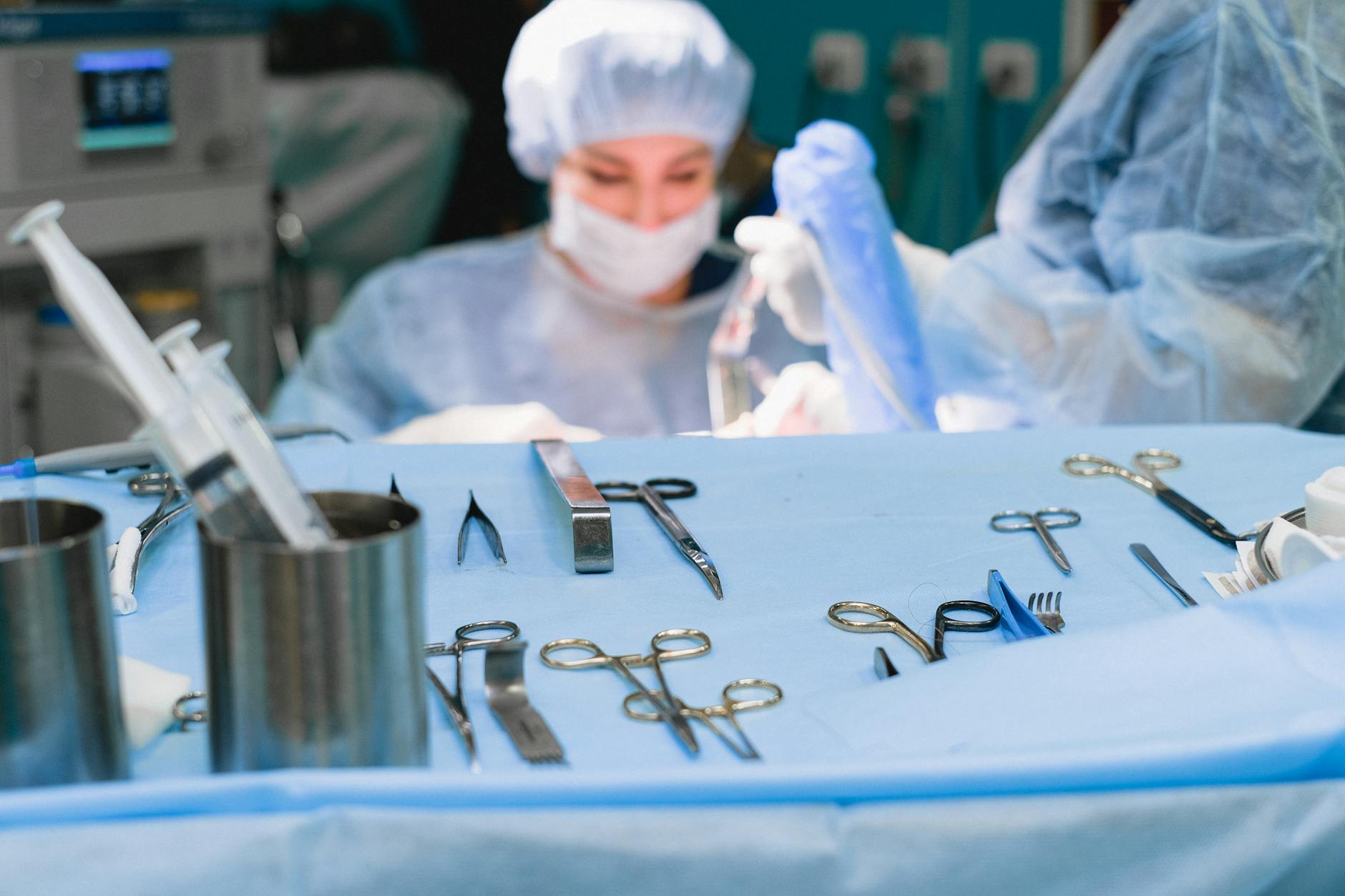
It often starts with a pain you think will go away on its own
Maybe it’s a twinge after lunch. A stretching sensation. A tightness when you bend forward. You try to ignore it. You wait a few days. Then a few weeks. It becomes part of your routine—just another thing you live around. You stop doing certain movements. You stop sleeping on one side. You start carrying your body more carefully, though you never say why. No one knows except you. Not yet. But something inside you has already begun to shift.
And then someone says, “You might want to get that checked.” So you do.
And what you thought was just a small issue becomes a conversation about surgery.
The word sounds big, even if the condition is small
You sit in the exam room, holding your coat in your lap. The word “surgery” echoes. Not emergency. Not urgent. But still—cutting. Still—your body. You feel your chest tighten, not from pain, but from something heavier. You hear words like “outpatient,” “recovery,” “minimally invasive.” They help. But not entirely. Because the idea is still new. Your body needs help it can’t give itself.
And that requires letting someone else inside.
Hernias can wait—but not forever
You first noticed it while lifting something heavy. A soft bulge, painless at first. It went away when you lay down. You didn’t worry. But it returned. Then again. Eventually, it stayed longer than it should. You started bracing yourself when standing. Avoiding stairs. Avoiding laughter. It sounds strange—but even laughter can hurt when a hernia grows. You lived with it. Until it pushed back. Until it told you, quietly but firmly, that it was done waiting.
Then a general surgeon stepped in.
Appendicitis isn’t polite—it doesn’t give you time
You remember where you were when the pain started. You remember what you ate. You remember thinking it was gas. Or maybe food poisoning. But it got worse. Faster than expected. More specific. You couldn’t get comfortable. You couldn’t stand straight. You called a friend. You went in. And before you could finish explaining your symptoms, they were prepping the OR. There wasn’t time for long talks. Just action. And a general surgeon you had never met took something out of you—something you never thought about until it nearly ruptured.
And then, just like that, it was over.
Gallstones don’t ask for permission—they interrupt
The pain came in waves. Not sharp, but strong. Deep. Like your insides were pulling tight. You changed your diet. You tried ginger tea. Hot water bottles. Breathing through it. But one night it came differently. Longer. Harder. Your skin felt tight. Your breath shallow. You couldn’t sit. Couldn’t lie down. You went in. The scan showed stones. The gallbladder had had enough. And the surgeon explained the next step like it was already decided—because it was.
You nodded, even before you fully understood.
Skin abscesses seem simple—until they aren’t
It started as a bump. You didn’t think much of it. A pimple, maybe an ingrown hair. You kept an eye on it. It grew. It hurt. It turned red, hot, tight. You couldn’t sit normally. Couldn’t wear your jeans. Couldn’t think straight. You tried every cream, every compress. You hoped it would pop. But it didn’t. It spread. The pain was loud now. So you went in. And the surgeon didn’t hesitate. A quick incision. A flood of pressure. Relief like silence after noise. You were sore. But lighter. Finally.
You left wishing you’d gone sooner.
Breast lumps don’t always mean cancer—but they always mean something
It wasn’t painful. Just different. You felt it one morning and hoped it would vanish. You checked again. It was still there. You told yourself not to panic. You told yourself not to Google. But you did both. You booked an appointment. They ordered tests. They did a biopsy. The surgeon called and spoke calmly. It may be benign, they said. It may not. Either way, it needs to come out. And you nodded, not because you were ready, but because you were already inside the moment.
Inside something you never imagined would involve a surgical table.
Pilonidal cysts hide quietly—then flare like fire
It sat silently at the base of your spine. You didn’t know it had a name. Then it swelled. Became tender. Became red. Then purple. You walked like something was chasing you. You sat only on one side. You barely slept. You thought it would drain itself. It didn’t. It closed over. Then reopened. Leaked. Then sealed again. This is how it traps you. With pain, unpredictability, and shame. A surgeon removed it. Removed the root. The tunnel. The tracks. Healing took time. But this time, it didn’t come back.
And that felt like a small miracle.
Some conditions don’t look like surgery—until they are
You think of general surgeons for big things. But often, they show up for small ones. Lipomas that grow slowly. Abscesses that won’t drain. Diverticulitis that keeps returning. Hemorrhoids that stop responding to creams. Masses. Lumps. Lesions. Wounds that won’t heal. Places where the body holds on too long or lets go too fast. Places where antibiotics can’t reach. Where rest can’t help. Where only hands—and knowledge—can step in and shift the story.
And they do.
Their work starts where the body refuses to self-correct
They are not the first name you think of. But they are the one you need when your body stops making progress. When your pain doesn’t make sense anymore. When your life starts organizing itself around discomfort. They don’t offer shortcuts. They offer clean incisions. Measured timing. Healing that hurts a little first. Then a little less. Then not at all.
They are the ones who interrupt what should never have been normal.
They don’t treat disease—they treat decisions
They ask: Can you live with this? Do you want to? What are you afraid of? They look at your scans. Then at your face. Then at your file. Then back at your face again. They explain options like steps. Some small. Some steep. But all moving forward. They treat what the body resists. And what you’ve quietly endured for too long.
And they give your body a chance to begin again.
